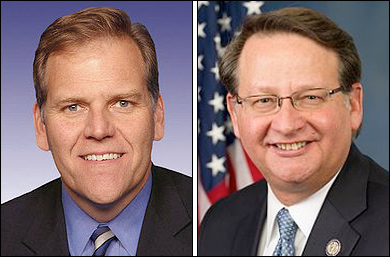By Jim Ellis
Jan. 5, 2022 — One of the biggest complaints most commonly aired about redistricting is that it favors incumbents, but such is not the case with the recently completed Wolverine State congressional map. In fact, the members of the Michigan Independent Citizens Redistricting Commission appear to have gone out of their way to upend the state’s sitting federal office holders.
The current 14-seat map features seven Democrats and seven Republicans with two of the seats converting from Republican to Democrat in the 2018 election. Michigan loses a seat in reapportionment, and it became apparent from the start that the Republicans would absorb the loss because a great deal of the population growth deficit was coming from the middle section of the lower peninsula.
That proved to be the case, but the cut was a bit different than expected. Considering the population deficit and Michigan’s geography, i.e., being surrounded by lakes, Canada, and other states, the most logical district for collapse appeared to be Rep. John Moolenaar’s (R-Midland) 4th District because it sat in the middle of the area that the population change clearly affected.
While the Moolenaar district was certainly altered in a significant manner, it was the western district of Rep. Bill Huizenga (R-Holland) that was broken into small pieces.
While true that Moolenaar was technically paired with Rep. Dan Kildee (D-Flushing/Flint) because his home city of Midland was placed in the new 8th District, a new safe Republican 2nd CD that contains much of the current Moolenaar district lies available for him to the west. While Rep. Kildee sees his home Flint/Flushing area remaining intact, he finds himself in a more competitive seat and may be facing a challenge from former congressman, attorney general, state appellate judge, and ex-US Senate and gubernatorial GOP nominee Bill Schuette in a seat that can now conceivably elect a Republican.





